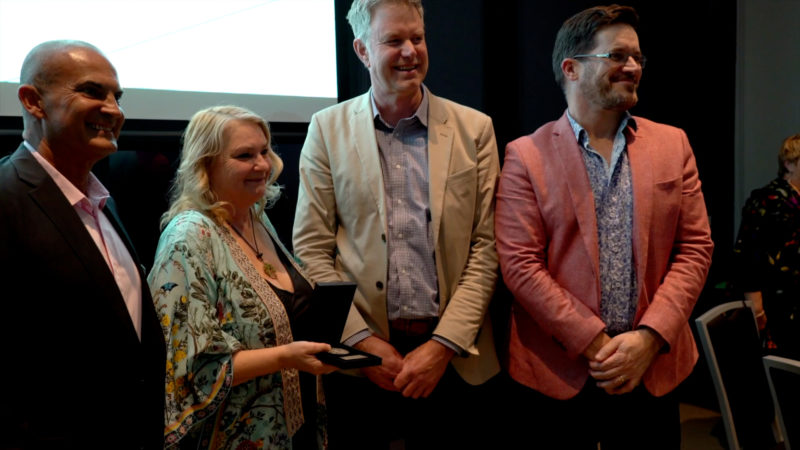ADVOCATING FOR AUSTRALIAN CHILDREN LIVING WITH VISION IMPAIRMENT
Australian Childhood Vision Impairment Register
With
Dr Susan Silveira
Chief Investigator
Australian Childhood Vision Impairment Register, NextSense &
Program Director
Master of Disability Studies (Macquarie University), NextSense
AUSTRALIAN HEALTH JOURNAL SEGMENT
Filmed in Sydney | June 2025
The Australian Childhood Vision Impairment Register (ACVIR), the first of its kind in Australia, captures uniquely Australian data which is used to improve services for children with vision impairment. The data is also available to researchers who work in the area of eye disease and disorders of vision.
Currently in Australia, we don’t know how many Australian children have vision impairment.
This makes it hard to plan for the services these children need, or to argue for research into preventing conditions which cause vision impairment.
NextSense Institute, in partnership with key Australian service providers, corporate donors, government departments and health professionals, has undertaken a major research project to develop and maintain an Australia-wide record of children with vision impairment.
This project is called the Australian Childhood Vision Impairment Register.
Australian Health Journal spoke with Dr Susan Silveira, Chief Investigator of the Register.
The Register collects accurate information on children who have been diagnosed by an ophthalmologist (eye doctor) with vision impairment.. This information is used to establish the number of children with vision impairment, the causes and level of vision impairment and any additional disabilities and health conditions these children have.
The Parent or guardian of a child, aged 0-18 years, who has been diagnosed by an ophthalmologist with vision impairment, are invited to join the Australian Childhood Vision Impairment Register.
The Australian Childhood Vision Impairment Register (ACVIR) is sponsored by NextSense with support from Guide Dogs, Vision Australia, low vision service providers and families of children with vision loss.
Source: Written by AUDIENCED sourced from NextSense website
You Might also like
-
AHHA Sidney Sax Medal 2019 Awarded to Vicki Wade
AHHA Sidney Sax Medal 2019 awarded to Vicki Wade
-
SAHMRI Celebrates 10 Years of Research
SAHMRI represents an exciting and unique statewide concept, bringing together basic and translational research, South Australia’s three universities and the health system. SAHMRI works in collaboration with its partners to provide a clear focal point for health and medical research, including paving the way for new partnerships, innovative research projects and improved health outcomes.
Executive Director, Professor Maria Makrides spoke to Australian Health Journal about 3 achievements in the past 10 years that have had significant impact
International leadership breakthroughs in leukaemia research
Culturally appropriate Indigenous health research and clinical care
Omega 3 fatty acids as a preterm birth prevention -
Gold Coast paediatric emergency nurse leads world’s largest study in securement
Brooke Charters is a dynamic Paediatric Emergency Nurse who works at the Gold Coast University Hospital in Queensland. Brooke’s research became the world’s largest study of its kind and in May 2024 the results of the study were published in JAMA Pediatrics. Her mission is to drive change and enhance the hospital experience for children globally.



